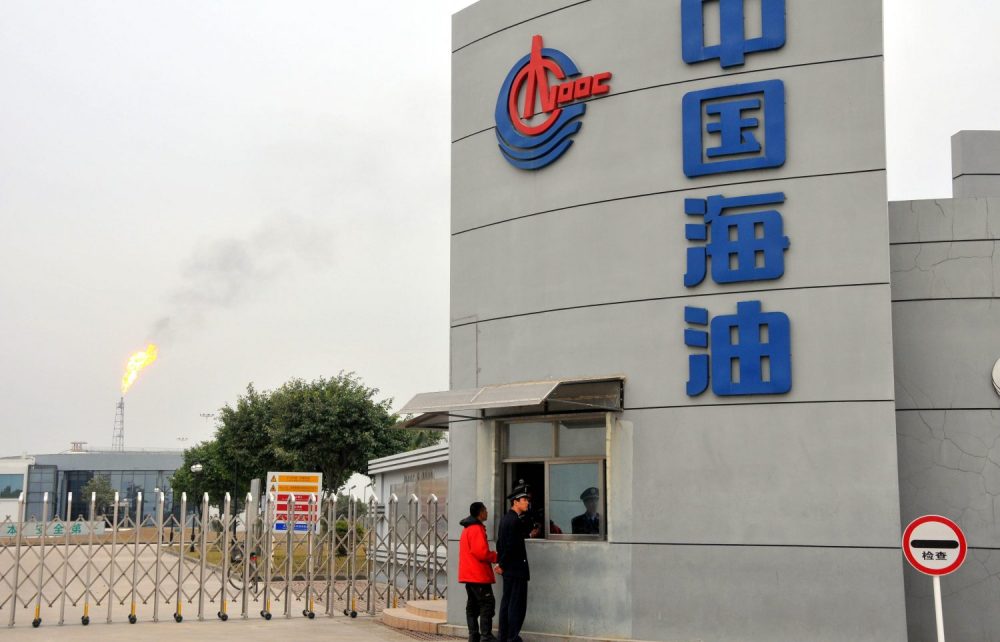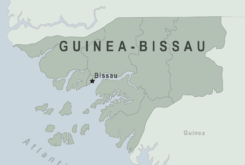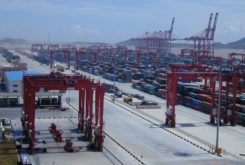Persistent political instability, and a few military coups, have hampered multiple business opportunities in Guinea-Bissau, from phosphates to ports and even oil. As the country takes strides to leave a phase of acute institutional conflict, a Chinese oil giant has gained a foothold in the development of the oil industry.
China National Offshore Oil Corporation (CNOOC), the largest Chinese oil and gas group, will enter into exploration operations in the Sinapa (Block 2) and Esperança (Blocks 4A and 5A) areas, offshore, west of the Bijagós archipelago. Their majority capital interest comes under a recent agreement with the current shareholders of the blocks.
Sinapa (Greater Atum) is considered the area with the best prospects, boasting estimated reserves of 120,000 tons per year, equivalent to 2,400 barrels per day, according to the results of prospecting activities carried out in 2017.
The operation will involve a farm-in at the company that operate of the blocks, SPE Guinea Bissau AB, owned by Swedish Svenska Petroleum Exploration AB, Australian FAR Limited and Empresa Nacional de Pesquisa e Exploração Petroliferas EP (Petroguin).
Still pending the approval of the Bissau-Guinean government, the operation entails CNOOC West Africa Petroleum taking a stake of 55.55 per cent of Svenska’s exploration licenses for the two areas. This stake will be converted, in the event of discovery of marketable hydrocarbons, into a 50 per cent share in each of the licenses. CNOOC’s acquisition operation is expected to be approved by the government as of September 2019.
Svenska will continue to operate the exploration licenses for existing wells until the start of the extraction process, scheduled for 2020.
FAR, Svenska’s equity partner in the SPE joint venture, with no direct stake in the exploration operations, has decided to authorise the operation, maintaining the current 21.42 per cent of the capital. FAR has commercial interests in The Gambia and Senegal, where it started production in 2014.
Svenska will now hold a 23.03 per cent minority interest, having sold most of its former majority interest to CNOOC. According to industry sources, it is likely that CNOOC will also become the main operator after the end of the drilling period and from the start of the production and marketing phase, in 2020.
Although production prospects are still limited, expectations of significant offshore reserves to the north, already close to the border with Senegal, arouse the greatest interest. Preliminary information points to an annual production potential of 200,000 barrels/year in the short to medium term.
In view of the commitments made to Senegal in 1995 and 2000 on oil exploration and revenues, which are regarded by industry as severely detrimental to Bissau-Guinean interests, around 80 per cent of oil production and trading in the north will fall to the Senegalese side. However, it is believed that southern reserves could exceed expectations, reducing the importance of the region shared with its northern neighbour.
The exploration project openly clashes with the protection of the Bijagós archipelago, which is considered nationally and internationally as one of the country’s leading sites of ecological and tourist potential.
In the past, the Guinea-Bissau offshore blocks have attracted interest not only from Chinese and Russian companies, but also from Petrobras (Brazil) and Sonangol. Sinopec is among the companies that have in the past taken interest in the area. Multiple drillings have been made, since 2007, by Premier Oil (US) and OXY (Great Britain).
Guinea-Bissau’s economy is currently dependent on agriculture, mainly cashew production, the country’s greatest export. The fluctuation of cashew prices in international markets have caused spurts of growth, as well as slowdowns, in the recent past. Attempts to diversify the economy have failed mostly because of persistent instability.
Following a military coup in 2012, the country held elections, but the last four years have been mired in institutional conflict that erupted after President José Mário Vaz ousted his then prime minister, Domingos Simões Pereira.
Simões Pereira’s party, PAIGC, won the most seats in the parliamentary elections in March this year. But after the president refused to confirm him as prime minister, the PAIGC nominated another head of government, Aristides Gomes, who is now attempting to revitalise the economy.
Presidential elections are scheduled for November and should lead to greater political stability, especially if Vaz does not run or is defeated. International partners are also pushing for a review of the constitution, that better clarifies the power of the president and the government, thus preventing future institutional clashes.




